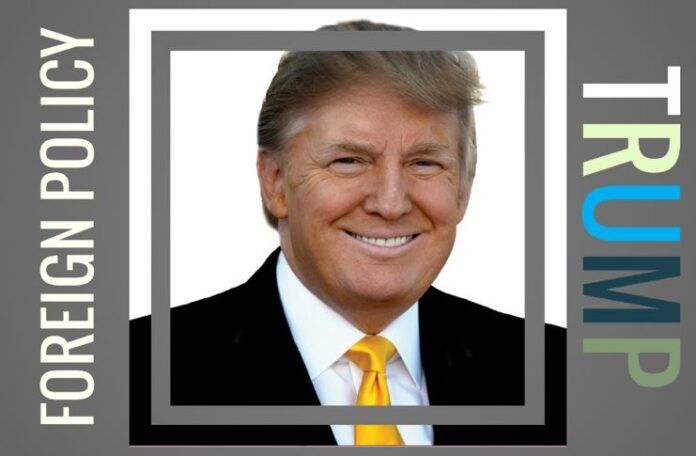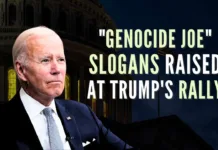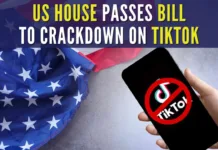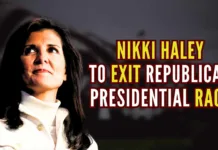
Part 1 of this series talks about US Foreign Policy under Trump and Part 2 talks about any re-alignment in the NATO that make take place because of a Trump Presidency. This is the concluding part.
[dropcap color=”#008040″ boxed=”yes” boxed_radius=”8px” class=”” id=””]T[/dropcap]his spectrum of views by neo-conservatives is a natural development as any organisation would embrace people with different ideas. However, the Pauls, Ron and Rand, refer to the inner core of the neo-cons as a “deep state” or a shadow government, which is more powerful than the government that rules.16 It is this deep state that has been aggressive against Iran.
Senate leader Mitch McConnell justified this extension on the grounds that Iran was being aggressive in the region by supporting Hezbollah and the Syrian regime.
The Iran Sanctions Act first introduced in 1996 is due to expire at the end of 2016. But on November 15, 2016, the Senate passed the ten-year extension of sanctions against Iran by 99:0, just weeks after the House passed it by 419:1. The virtual absence of opposition to this extension shows the power of the deep state. Senate leader Mitch McConnell justified this extension on the grounds that Iran was being aggressive in the region by supporting Hezbollah and the Syrian regime.17
Trump’s policy on Iran was similar, except that he noted that he could not violate an agreement which was passed by the UN Security Council. Obama eventually signed the bill. He had argued that the terms of the Sanctions Act included the right to unilaterally impose sanctions if needed. But Congress had enough votes to override a possible President’s veto.
The retiring CIA Director John Brennan told Trump that tearing up an agreement made by one Administration was unprecedented and was the “height of folly.” Iran had not broken any agreement, and it and its neighbours would embark on nuclear development, knowing full well that the US could not be trusted.18
Foreign Minister Mohammad Javad Zarif noted that Iran had many options if JCPOA failed. The man responsible for nuclear development, Ali Akbar Salebi, said that he had met with Rouhani and agreed on a number of reactions. The Arak nuclear facility could be reactivated and they could produce a sizeable amount of uranium in one and a half years.19 If Iran goes nuclear, the rich Sunni neighbours might do so too. The Non-Proliferation Treaty would be considered dead. Militarily, Iran is in the Shanghai Cooperation Organisation which can stand up to NATO; financially, sanctions will drive Iran into the yuan camp; and, much more significantly, it will intensify the Sunni-Shia rivalry which needs to be curbed rather than fueled.
Events surrounding the nuclear curtain are altering to favour Russia, so much so that Obama claimed that Russia is a superpower after asserting that it was a mere regional power. In the recent elections in Bulgaria and Moldova, the two winners openly favoured being pro-Russia; Bulgarian President-elect Rumen Radev called for the end of sanctions on Russia. Czech PM Bohuslav Sobotka noted that the NATO radar station on his soil was pure fiction. Even Jeremy Corbyn, the British Labour leader called for the demilitarization of the border with Russia. He did not want a nuclear war; instead, he preferred using the Organisation for Security and Cooperation in Europe as a forum to discuss differences.20 In February 2017, pro-Russian Frank-Walter Steinmeier is tipped to replace anti-Russian Joachim Gauck as Germany’s President; the former wants sanctions against Russia lifted.21 The next French President Francois Fillon also wants to repair ties with Russia. By and large, Eastern Europe fears Russian re-occupation if war breaks out.
[dropcap color=”#008040″ boxed=”yes” boxed_radius=”8px” class=”” id=””]T[/dropcap]he saying, “if you can’t beat ‘em join ‘em,” applies to Israel which is actively seeking to launch a Free Trade Agreement with Russia in agriculture. Deputy Prime Minister Arkady Dvorkovich wants to take advantage of a falling ruble and a price gap to trade agricultural high tech with wheat, beef and eggs.22
Putin boasts that Russia has no boundaries.
If Russia is drawn within the western camp, China will replace Russia as America’s next adversary.23
Putin’s success has been so remarkable that he is becoming a dictator by popular demand. Many in Russia feel comfortable that their country’s influence is spreading to Syria and beyond. Putin boasts that Russia has no boundaries. Despite sanctions, Putin made the ruble stronger: in an atmosphere of near zero interest rates, Russia is offering more than 7% in the last three months and the rate might go up to 15%. The ruble climbed steadily from 85.999 rubles to a dollar in January, to 63.7 per dollar, a 15% gain. By the end of 2016, the rate is expected to rise to 61 per dollar.24 Russia’s gold buying in October, 2016 of 1.3m. ounces of gold has been its largest this Millennium vs 4 tons of October gold purchases for China. In 2014, Russia added 172 tons of gold, while in 2015 the figure was 208 tons of gold. Russia is also the third largest gold producer in the world.25
Putin’s role in the Orthodox Church (ROC) is, in addition, central to Russia’s imperial power. Russia’s protection of Mount Athos gives it guardianship of 260 million followers in East and Central Europe. Alexander Dugin, a leading theorist of Russian power noted that Orthodoxy is the core of Russian values and it has saved Putin from anti-Putinists within Russia. Since 1990, 25,000 ROC churches have been built or refurnished in Russia and since all former confiscated land has been returned to the ROC, the Church has backed Putin firmly.26
To consolidate power further, Putin is purging the Medvedev government and locking up corrupt administrators: a Minister of the Economy in the Medvedev government was found with $2 million in his home which was a bribe he extorted from the President of Rosneft who was close to Putin and the intelligence services; the governor of Kirov region was arrested for a bribe of €400,000 which he took in June; two deputies to governor of central Russia’s Kemerovo region were arrested for seeking shares in a coal mine; and amongst others, the former deputy governor of St Petersburg was charged for extortion in the construction of a soccer stadium. Putin frequently used the siloviki to exercise power; they consisted of top officials of powerful ministries like defense, state security and intelligence. The judiciary seems to be absent from these actions on corruption.27 Putin would have no trouble, after these manoeuvres, in winning the next election for the Presidency.
[dropcap color=”#008040″ boxed=”yes” boxed_radius=”8px” class=”” id=””]T[/dropcap]here is another dimension besides war that will destabilize the Middle East. Dr. Kent Moors, 28 an authority on energy, notes that Trump’s determination to make the US self-sufficient in energy will destabilize the region. Saudi Oil Minister Khalid al-Falih declared at first that OPEC would not tolerate any cuts in oil imports. Oil is integrated globally and it affects security. After the November 30, 2016 meeting in Vienna, Al-Fatih realized that OPEC had lost its monopoly of the oil sector. OPEC had become a two-tier organisation with the big three, Saudi Arabia, Kuwait and the United Arab Emirates, forming a cartel and separating itself from the rest. Saudi Arabia had to accept a cut in oil production.
In 2015, the US had 368K military personnel in the APEC region, 2.6% west of the International Date Line. China was the main target of US’s Pivot to Asia policy.
If the Middle East were destabilized, there would most likely be the emergence of new states. The Kurds would like to be an autonomous or an independent state, while the Sunni-Shia rivalry might lead to the Sunni rulers losing their throne in Bahrain. In March 2011, Saudi Arabia sent troops to Bahrain to defend the kingdom.
Since the Middle East has become less important to the US, the latter has turned to Asia, especially East Asia. Trump rejects the TPP trade agreement and wants to have bi-lateral ties with each Asian country. His focus at the moment has been the South China Sea. The National Institute of for South China Sea Studies has this assessment of US policy.29
Re-balancing would mean that by 2020, the US would have 60% of its naval vessels and air force in the APEC region. In 2016, the defense budget would increase by 4% from $585.3 billion with no increases the following year. With Trump’s domestic reforms, one cannot bank on these figures. In 2015, the US had 368K military personnel in the APEC region, 2.6% west of the International Date Line. China was the main target of US’s Pivot to Asia policy. In 2009, the US Pacific Command had 260 close reconnaissance sorties against China; in 2014, that figure increased to 1,200. In 2014, there were 160 bilateral and multilateral military exercises against China; in the following year that figure was 175. The US also held joint military exercises with Japan, South Korea, Philippines, Thailand, Singapore, Malaysia, and China. China felt that there ought to be less friction and that China and the US should manage crises: there should be, “non-conflict, non-confrontation, mutual respect, and win-win cooperation.” Trump wants to know more about China, which explains his unusual call with the leader of Taiwan.
The US-Japan nuclear treaty has been the lynchpin of the policy towards China but it expires in 2018. With Trump being so unpredictable, Abe is a bit confused, but after the meeting with Trump, expressed confidence in him. But the meeting in the States was attended by Trump’s daughter, Ivanka, and her husband, Jared Kushner, both of whom do not have government security clearance. Pamela Kruger described the meeting as “something out of a tin pot oligarchy.”30 Trump has opened himself to the charge of nepotism, more like an Eastern dictator. Meanwhile, Japan and South Korea have joined to counter the North Korea threat.
[dropcap color=”#008040″ boxed=”yes” boxed_radius=”8px” class=”” id=””]T[/dropcap]rump has shown a lack of understanding of China and its rising role in international affairs. He trumpeted that China was a “currency manipulator.” As China joins the IMF and makes its currency international, China is forced to follow international rules as laid down by the Washington Consensus. China has to be more open with its yuan, and it introduced currency swaps on a large scale. Currency swaps are a one to one agreement between two countries to trade in their own currencies which means that it cannot manipulate international currencies. Since 2008, China has signed currency swaps with 30 countries, not excluding developed countries, to the tune of 3 trillion yuan.31 In fact, it is the IMF that has been manipulating currencies. In exchange for loans, the IMF demands conditions, the most severe of which is devaluation which then leads to hyperinflation and instability of a country. In the second quarter of 2016 alone, foreigners bought $14 billion worth of yuan-denominated debt and this sum could triple – a sure sign of confidence. The yuan is already the fourth most liquid currency in the world.32
To “restore” American greatness Trump might well have to be a Peacenik.
Trump said that he was going to make America great again. After 1990, when the Soviet Union crumbled, America was the sole Superpower and Putin publicly accepted this title. But such a recognition did not mean that Russia was going to be bullied into submission; Putin was expanding Russian influence. His entry into Syria to save President Assad was a stroke of genius and impressed weaker states, like the Philippines.
To “restore” American greatness Trump might well have to be a Peacenik. He has to organize a Marshall Plan for Syria rather than try to depose the ruler. He has to stop intimidating Iran and use diplomacy to soften the regime. He has to encourage the building of the Organisation of Islamic Cooperation (OIC) as a viable federal structure to stop the flow of Muslims into Europe and to foster Islamic culture and its modernisation. He should, with diplomacy, bridge the gap between Sunnis and Shias. If Trump works towards a peaceful world, the Pentagon will need less money, which would go towards lowering the national debt. Wouldn’t it be nice if Trump were a political fire-fighter?
Bibliography
- Daniel Davies, “US taking Raqqa could be another way – scene is set for WW III,” national interest.com, also russiainsider.com, 9.11.16.
- Tyler Durden, “The Globalists are setting the stage for World War III,” zerohedge.com and russiainsider.com, November 15, 2016.
- Johnathan Power, “Peace can be made with Russia,” arabnews.com, November 23, 2016.
- Nick Giambruno, “Has World War III already started?” russiainsider.com, October 20, 2016; Julian Robinson, “How to survive war! Lithuanians are handed a 75-page manual … and why you need to pack condoms,” dailymail.co.uk, October 29, 2016.
- “Poland celebrates independence Day on November 11,” warsawvoice.pl, November 11, 2016.
- Riley Waggaman, “This is not a drill: NYT Editorial Board lays groundwork for war with Russia. Can’t wait,” russiainsider.com, September 30, 2016.
- “USA media jackals: five corporations own 90% of the media,” pravdareport.com, November 17, 2016.
- Christoph Germann, “Washington War Party urges Obama to go to war against Assad and the Russians,” russiainsider.com.en, October 27, 2016.
- Artem Kureev, “A Trump presidency will have implications for NATO,” russiadirect.com, November 15, 2016.
- Daniel McAdams, “McCain to Trump: Don’t you dare make peace with Russia!” ronpaulinstitute.com & russiainsider.com, November 16, 2016.
- Ricky Twixdale, “General Michael Flynn says US and Russia must adopt strategic cooperation,” russiainsider.com, November 24, 2016.
- Victor Kotsev, “Why do many around the world see Trump as a Peacenik?” russiainsider.com, November 23, 2016.
- Robert Parry, “Trump has a shot at real greatness but only if he kicks out the neo-cons,” consortiumnews.com & russiainsider.com, November 16, 2016; John Wight,” Why Trump must slay the beast of neo-conservatism,” sputnik.com & russiainsider.com, November 15, 2016; Eric Zuesse, “Who will win the war between Trump and the neo-cons?” russiainsider.com, November 16, 2016.
- Vincent DeLarge, “The Alt-Right: A comprehensive Overview,” russiainsider.com, October 1, 2016.
- Amanda Taub, “White Nationalism: Explained,” nytimes.com, November 21, 2016.
- Ron Paul, “Ron Paul cautions on Trump, says ‘deep state’ still powerful,” russiainsider.com, November 11, 2016.
- Ted Barrett, “Senate votes to extend sanctions against Iran,” cnn.com, December 1, 2016.
- Gordon Corera, “CIA chief warns Trump: Scrapping Iran deal ‘height of folly,’” bbc.ocm, November 30, 2016.
- “Plans underway if US fails to make good on JCPOA: Salehi,” tehrantimes.com, November 28, 2016.
- M. K. Bhadrakumar, “Trump effect sends shockwaves through Europe,” indianpunchline.com & russiainsider.com, November 17, 2016.
- Peter Korzun, “Russia-friendly FM Steinmeier tapped for President of Germany,” Strategic Culture Foundation & russiainsider.com, November 22, 2016; see also Finian Cunningham, “Next President likely to buck sanctions, repair ties with Russia,”russiainsider.com, November 23, 2014.
- “Report: Russia, Israel, to sign FTA,” thejewishpress.com, November 19, 2016.
- Sergei Strokan, “Under Trump, China may once again replace Russia as main US adversary,” rbth.com, November 15, 2016.
- Bnc Intelli News, “Russian currency becoming ‘super-carry’ currency,” russiainsider.com, November 10, 2016.
- Mark O’Byrne, “Putin buys the dip – Russia’s gold buying in October largest this millennium,” russiainsider.com, November 23, 2016.
- Paul Coyer, “(Un) holy alliance: Vladimir Putin, the Russian Orthodox Church and Russian Exceptionalism,” forbes.com, May 21, 2015; see also Simon Shuster, “Putin’s Pilgrimage,” Time, September 12-19, 2016.
- The Saker, “Putin is finally purging the Medvedev government,” The Unz Review & russiainsider.com, November 18, 2016; “Putin is suddenly busting corrupt officials left and right,” rt.com & russiainsider.com, November 17, 2016.
- Dr. Kent Moors, “Trump is already changing the Middle East – and oil markets too,” oilandenergyinvestor.com, November 22, 2016.
- National Institute for South China Sea Studies, “Report on the Growing US military presence in the Asia-pacific region,” chinadaily.com.cn, November 25, 2016.
- Pamela Kruger, “Ivanka Trump at Japanese PM Meeting was ‘out of a tin pot oligarchy,” fortune.com, November 18, 2016.
- Keith Fitzerald, “Yuan 1, Doomsayers 0: Here’s how you profit,” totalwealthresearch.com, November 24, 2016.
- Wang Yanfei, “Moves on yuan point to reform,” chinadaily.com.cn, November 25, 2016.
- Part2 – China’s Road to Superpower status - July 20, 2017
- Part1 – China’s Road to Superpower status - July 18, 2017
- P2 – Can or should Qatar be ostracised? - June 29, 2017










